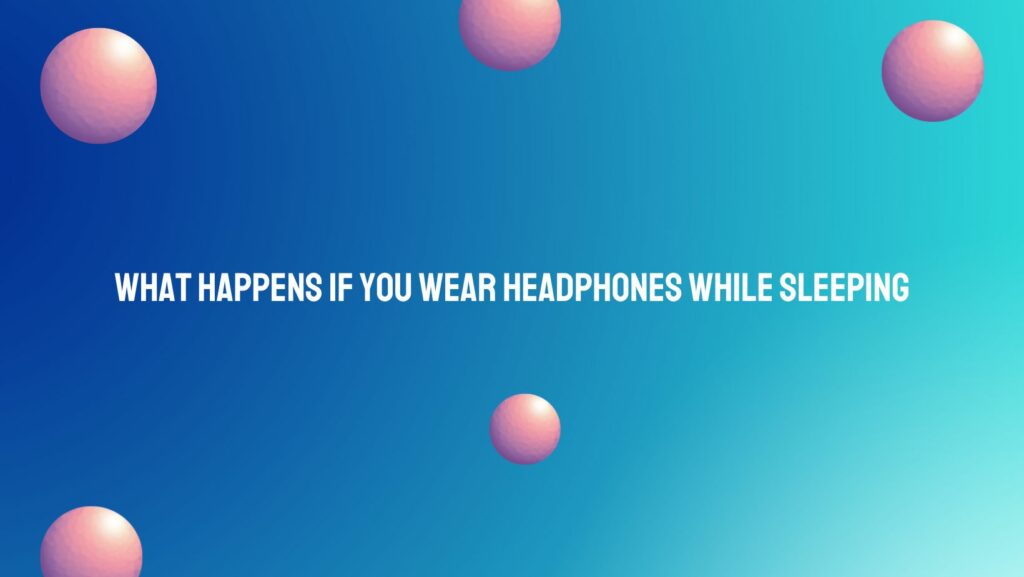In the pursuit of a good night’s sleep, many individuals turn to various aids to help them drift off into the realm of dreams. For some, this includes the use of headphones to listen to soothing music, white noise, or guided meditations. While wearing headphones while sleeping may seem harmless or even beneficial for some, it’s important to understand the potential effects and considerations associated with this practice.
The allure of wearing headphones while sleeping lies in the promise of relaxation and the creation of a personalized auditory environment conducive to rest. Music, nature sounds, or calming audio tracks can help mask external noise, soothe the mind, and promote relaxation, making it easier to fall asleep and stay asleep throughout the night.
However, beneath the surface of this seemingly innocuous practice lie considerations of comfort, safety, and the potential impact on auditory health. Wearing headphones while sleeping can pose several risks and challenges that individuals should be aware of before making it a regular part of their sleep routine.
One primary concern associated with sleeping with headphones on is the risk of physical discomfort and potential injury. The pressure exerted by headphones on the ears and surrounding areas can lead to soreness, discomfort, and even pain over time. In-ear headphones, in particular, may cause irritation or pressure on the ear canal, potentially increasing the risk of ear infections or discomfort.
Moreover, the presence of wires or cables associated with headphones poses a risk of entanglement during sleep, which can disrupt sleep patterns and pose safety hazards. Individuals who toss and turn during the night may inadvertently pull on headphone cords, leading to discomfort or even damage to the headphones themselves.
Another consideration is the potential impact on auditory health. Listening to audio at high volume levels, even while sleeping, can increase the risk of auditory damage and contribute to temporary or permanent hearing loss over time. The World Health Organization (WHO) warns that exposure to sounds exceeding 85 decibels (dB) for extended periods poses significant risks to auditory well-being. Therefore, individuals should exercise caution and moderation when using headphones while sleeping to prevent overexposure to harmful sound pressure levels.
Despite these risks and considerations, wearing headphones while sleeping can be a viable option for some individuals under certain circumstances. For those who live in noisy environments or struggle with insomnia, headphones can provide a sense of comfort and security by masking disruptive sounds and promoting relaxation.
However, to minimize the risks associated with sleeping with headphones on, individuals should consider using wireless or Bluetooth-enabled headphones to eliminate the risk of entanglement and discomfort from wires. Additionally, selecting headphones with a comfortable and lightweight design can help reduce pressure and discomfort on the ears and surrounding areas.
In conclusion, while wearing headphones while sleeping may offer potential benefits in terms of relaxation and creating a personalized sleep environment, it’s essential to approach this practice with caution and mindfulness. Understanding the potential risks and considerations associated with sleeping with headphones on can help individuals make informed decisions about their sleep routines and prioritize both comfort and auditory health. Ultimately, finding the right balance between relaxation and safety is key to achieving sound slumber and promoting overall well-being.


